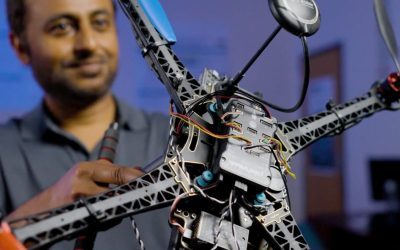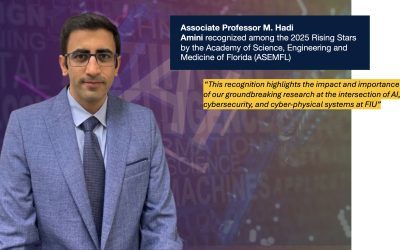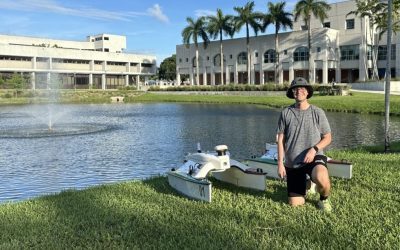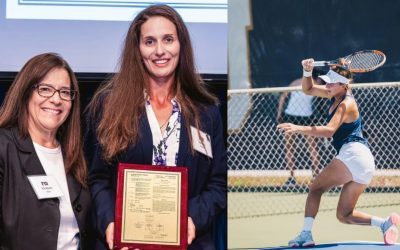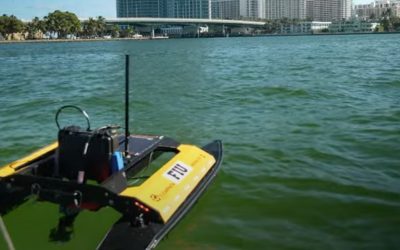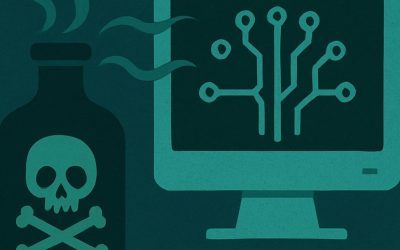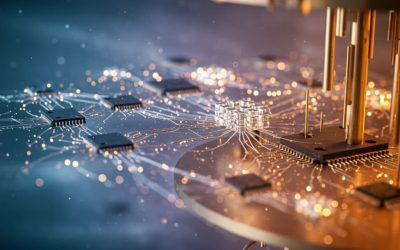Cyberattacks aren’t just a headline—they’re a real threat, even for drones. That’s why FIU researchers are stepping up with Shield Activated, a breakthrough defense system designed to keep drones safe in the skies. This isn’t just tech—it’s innovation with impact....
Research
Celebrating Faculty Excellence: Computer Science
Associate Professor M. Hadi Amini, Knight Foundation School of Computing and Information Sciences, was recognized for pioneering research in bridging the gap between computing sciences (learning and optimization) and cyber-physical critical infrastructures security...
New AI flood model gives water managers up-to-the-minute decision-making tool
Floods don’t wait—and now, thanks to FIU researchers, water managers won’t have to either. In a groundbreaking leap for climate resilience, FIU has unveiled an AI-powered flood model capable of simulating worst-case scenarios in seconds. Designed to help Florida’s...
How researchers are helping robots think for themselves to protect the environment
What looked like a swarm of 100-pound robots nearly colliding in the lake behind FIU’s Green Library was actually a glimpse into the future of marine environmental monitoring. Led by Ph.D. graduate Paulo Padrão, FIU researchers are pushing the boundaries of autonomous...
How poisoned data can trick AI − and how to stop it
Artificial intelligence is transforming everything—from how we drive to how we diagnose disease. But what happens when the data feeding these systems is deliberately corrupted? Welcome to the world of data poisoning. In a recent article from FIU News, KFSCIS...
Quantum scheme protects videos from prying eyes and tampering
When tomorrow’s hackers bring quantum power, today’s video encryption might crumble—but FIU researchers have a solution. Their pioneering quantum-safe video encryption uses true quantum randomness to scramble each video frame, making them appear as noise to anyone...
Brains and brawn: Ukrainian student-athlete graduates with a Ph.D. in computer science
Maryna Veksler’s journey begins with sheer persistence—a Ukrainian teen wooed to FIU by a determined tennis coach despite her limited English and unfamiliarity with U.S. academics. What started as a singular focus on going pro in tennis soon intersected with coding...
Why are robots roaming Biscayne Bay?
Florida International University scientists have deployed a fleet of autonomous surface vessels and sensor‑equipped buoys to monitor and protect Biscayne Bay after a dramatic fish kill in the summer of 2020, which revealed the bay's vulnerability to high water...
“Poisoned” AI models can unleash real-world chaos. Can these attacks be prevented?
Florida International University cybersecurity researchers warn that AI's insatiable demand for data makes it vulnerable to subtle “data poisoning” attacks, where bad actors inject misleading or false examples into training sets to distort AI behavior in dangerous...
Computer scientists create algorithm to protect videos from quantum hacking
Florida International University computer scientists, led by Distinguished University Professor Dr. S. S. Iyengar, have developed a new algorithm designed to protect video content from the looming threat of quantum hacking. The algorithm, created in collaboration with...

